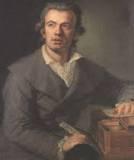Planning worship?
Check out our sister site, ZeteoSearch.org,
for 20+ additional resources related to your search.
- |
User Links
Person Results
Samuel Sebastian Wesley

1810 - 1876 Person Name: S. S. Wesley Composer of "ENGEDI" in The Book of Common Praise Samuel Sebastian Wesley (b. London, England, 1810; d. Gloucester, England, 1876) was an English organist and composer. The grandson of Charles Wesley, he was born in London, and sang in the choir of the Chapel Royal as a boy. He learned composition and organ from his father, Samuel, completed a doctorate in music at Oxford, and composed for piano, organ, and choir. He was organist at Hereford Cathedral (1832-1835), Exeter Cathedral (1835-1842), Leeds Parish Church (1842-1849), Winchester Cathedral (1849-1865), and Gloucester Cathedral (1865-1876). Wesley strove to improve the standards of church music and the status of church musicians; his observations and plans for reform were published as A Few Words on Cathedral Music and the Music System of the Church (1849). He was the musical editor of Charles Kemble's A Selection of Psalms and Hymns (1864) and of the Wellburn Appendix of Original Hymns and Tunes (1875) but is best known as the compiler of The European Psalmist (1872), in which some 130 of the 733 hymn tunes were written by him.
Bert Polman
Samuel Sebastian Wesley
Johann G. Naumann

1741 - 1801 Person Name: Naumann Composer of "NAUMANN" in Laudes Domini Johann Gottlieb Naumann; b. near Dresden, 1741; d. Dresden, 1801
Evangelical Lutheran Hymnal, 1908
==========================
Born: April 7, 1741, Blasewitz, Dresden, Germany.
Died: October 23, 1801, Dresden, Germany.
Buried: Eliasfriedhof, Dresden, Germany.
Naumann received his musical training in his town school, where he learned piano and organ. Later, he studied at the Kreuzschule in Dresden and was a member of the Dresden Kreuzchor. In Dresden, he learned from the organist and cantor of the Kreuzschule, Gottfried August Homilius, a student of Bach. In May 1757, he traveled to Italy with Swedish violinist Anders Wesström. Composer Giuseppe Tartini encountered Naumann in 1762 and took an interest in his work. Later that year, Naumann made his debut as an opera composer in Venice with Il Tesoro Insidiato. After his successful 1764 production of Li Creduti Spiriti, he was engaged as the second church composer at the Dresden court, on the recommendation of composer Johann Adolf Hasse.
In 1777, as a result of negotiations by Swedish diplomat Count Löwenhjelm, Naumann was appointed to reform the Stockholm Hovkapell and help King Gustavus III in his opera plans. His work in Sweden led to the 1782 production of his opera Cora och Alonzo at the inauguration of the new opera house in Stockholm, and the 1786 production of Gustaf Wasa, based on an idea of the king for a Royal Swedish Opera. After a period as guest composer in Copenhagen (1785-56), he returned to Dresden, where he became Oberkapellmeister.
In 1792, Naumann married Catarina von Grodtschilling, daughter of a Danish vice-admiral. His grandson was composer Ernst Naumann (1832–1910).
http://www.hymntime.com/tch/bio/n/a/u/naumann_jg.htm
==============================
http://en.wikipedia.org/wiki/Johann_Gottlieb_Naumann
Johann G. Naumann
Henry Killick Morley
b. 1855 Person Name: H. K. Morley Composer of "NEWCASTLE" in The Book of Common Praise
Henry Killick Morley
Caroline E. May
1808 - 1873 Author of "O Saviour, where shall guilty man" in The Hymnal May, Catherine Elizabeth, née Martin, p. 1584, i., under "O Saviour," &c. She was the only daughter of Sir Henry William Martin, Bt, and was b. at Lockinge Park, near Wantage, Feb. 19, 1808; m. 1837 to the Rev. George May, who was from 1843 to 1861 Vicar of Lyddington, Wilts; died at Totland, Isle of Wight, Sep. 12, 1873. The first verse of her hymn, "O Saviour, where shall guilty man," appeared in Dr. Maurice's Choral Harmony, 1858, set to a tune called "Lyddington." which was composed by Dr. E. F. Rimbault, and is dated 1856. [Rev. James Mearns, M.A.]
--John Julian, Dictionary of Hymnology, New Supplement (1907)
Caroline E. May


 My Starred Hymns
My Starred Hymns


